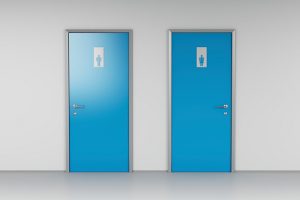 There are many different reasons to experience bladder troubles. The good news is, many of them are not serious and can be easily treated. If you’re the kind of person whose first instinct when entering a home, store, or movie theatre is to check where the bathrooms are, you’ve let your bladder problems control your life. Instead of living for your bladder, why not live for yourself and understand the possible causes that could be sending you rushing to the nearest toilet. Here are nine reasons why you may be experiencing bladder problems.
There are many different reasons to experience bladder troubles. The good news is, many of them are not serious and can be easily treated. If you’re the kind of person whose first instinct when entering a home, store, or movie theatre is to check where the bathrooms are, you’ve let your bladder problems control your life. Instead of living for your bladder, why not live for yourself and understand the possible causes that could be sending you rushing to the nearest toilet. Here are nine reasons why you may be experiencing bladder problems.
9 reasons you’re experiencing bladder problems
Your perception could be off
Advertisement
What you think is a lot of bathroom trips may actually be normal. Some people believe that going to the bathroom during the night isn’t normal, but in fact, going once is considered normal. Furthermore, if you generally try to stick to the eight-glasses-a-day rule, you will find yourself going more frequently. If you’re unsure what is considered normal or not, speak with your doctor.
Your bladder is small
Believe it or not, but some of us do have smaller bladders than others. So if other people never go and you jet every hour even after consuming the same amount of liquid, you could simply have a smaller bladder.
A typical bladder can hold two cups of fluid, but if you’re going to the bathroom often and not producing enough, that can indicate another issue altogether. If you’re unsure about how much urine you’re expelling, you can actually measure it by peeing into a cup and observing if you reach the 1.5 to two cups.
Even if anatomically you’ve been plagued with a small bladder, you can strengthen it to hold more fluid. To stretch out your bladder, it’s actually recommended to hold in your urine for a while rather than immediately head off to the bathroom. The trick is to not hold in your urine for too long to the point when you start experiencing pain.
You don’t drink enough water
Generally, we urinate when we consume too much fluid, but the same can also happen with too little hydration. When you don’t consume fluids, the urine that’s in you already becomes concentrated, which irritates the bladder and causes an urge to urinate without truly needing to go. Therefore, you will find only trickles of pee coming out. By drinking more water, you can begin to hold more urine over time and visit the bathroom less.
You have an infection or kidney stones
Frequent urination can be a sign of an infection or kidney stones, especially if other symptoms, like pain and burning sensation, accompany urination. Although kidney stones are more obvious to diagnose – you will experience sharp pains in your lower back – a urinary tract infection can simply begin with more frequent trips to the bathroom. So if you haven’t changed your fluid intake and you’re going more often, go see your doctor.
You need to work on your Kegels
Our pelvic floor is full of muscles, which need to be exercised and strengthened like other muscles in the body. To perform Kegel exercises, simply contract the muscles of your pelvic floor as if you are holding in urine, hold for a few seconds, and release. The best part is, this exercise can be done anywhere at any time, and no one will know you’re even doing it!
You have an overactive bladder
With aging, the risk of an overactive bladder increases. This is a condition in which there is a constant urge for urination and yet not much comes out. Medical conditions can contribute to an overactive bladder, too, so it’s best that you speak with your doctor about concerns of an overactive bladder.
You’re on certain medications
Certain medications like diuretics used to treat high blood pressure can prompt the kidneys to produce excess urine quicker, thus causing you to go to the bathroom more frequently. Other medications like anticholinergics used to treat anxiety can have similar effects on the bladder. It may be wise to check to see if your medications are the cause of your bathroom trips.
You could have diabetes
If you haven’t been diagnosed with diabetes, frequent urination, especially at night, is an early sign of the condition. When blood sugar is high, the kidneys have trouble processing it, so it ends up in the urine. Excess sugar also draws more fluid, which translates into more peeing throughout the day.
If you urinate a full two cups each time you go and if you are consuming sugary food items, see your doctor to get checked for diabetes.
Advertisement
You have a serious bladder problem
Any sudden change to your urine patterns that don’t result in any of the causes listed above could signal a far more serious bladder problem that you should discuss with your doctor. Urine problems could be a sign for bladder cancer, multiple sclerosis, and even herniated discs. Aside from monitoring your bladder patterns, pay close attention to any other symptoms that have just appeared to discuss them to your doctor, too.
Related: Urine specific gravity test: How well your kidneys are diluting your urine
